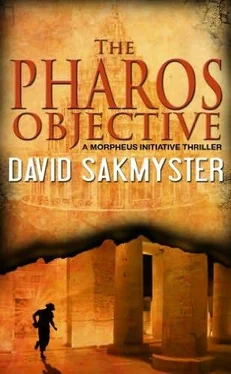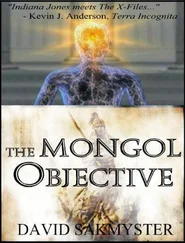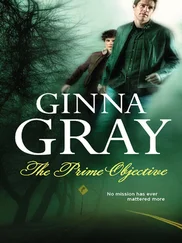David Sakmyster - The Pharos Objective
Здесь есть возможность читать онлайн «David Sakmyster - The Pharos Objective» весь текст электронной книги совершенно бесплатно (целиком полную версию без сокращений). В некоторых случаях можно слушать аудио, скачать через торрент в формате fb2 и присутствует краткое содержание. Жанр: Прочие приключения, на английском языке. Описание произведения, (предисловие) а так же отзывы посетителей доступны на портале библиотеки ЛибКат.
- Название:The Pharos Objective
- Автор:
- Жанр:
- Год:неизвестен
- ISBN:нет данных
- Рейтинг книги:3 / 5. Голосов: 1
-
Избранное:Добавить в избранное
- Отзывы:
-
Ваша оценка:
- 60
- 1
- 2
- 3
- 4
- 5
The Pharos Objective: краткое содержание, описание и аннотация
Предлагаем к чтению аннотацию, описание, краткое содержание или предисловие (зависит от того, что написал сам автор книги «The Pharos Objective»). Если вы не нашли необходимую информацию о книге — напишите в комментариях, мы постараемся отыскать её.
The Pharos Objective — читать онлайн бесплатно полную книгу (весь текст) целиком
Ниже представлен текст книги, разбитый по страницам. Система сохранения места последней прочитанной страницы, позволяет с удобством читать онлайн бесплатно книгу «The Pharos Objective», без необходимости каждый раз заново искать на чём Вы остановились. Поставьте закладку, и сможете в любой момент перейти на страницу, на которой закончили чтение.
Интервал:
Закладка:
Nothing happened.
He was impatient, and growing angrier with the mocking sense of nothingness that pervaded the room. The parted doors teased him with a false sense of progress that made him furious. But he knew for sure he wasn’t ready. Yet, finally, in desperation, he bolted and ran, determined to make it through regardless of what was expected of him.
It started closing as soon as his weight lifted off the block. Caleb leapt for the narrowing aperture — and collided with the wall as it sealed. The seven signs wheeled back to their preset positions, and something beyond the great door made a low, wheezing sound like a heavy sigh.
Over the next few days Caleb attempted it eight more times.
Every time the same. The fire, the water, the air… and then nothing. He read and reread everything he had on alchemy. He studied the teaching of Balinas of Tyna, who had claimed to have mastered the Emerald Tablet, and who had performed miracles, healed the sick. He studied all the theories about what the tablet was supposed to contain. All of these interpretations had become infused in his mind, into his very breath. And yet he came no closer to wisdom.
And despite Lydia’s belief in his eventual transition, nothing happened. He may have passed the first two tests, but he still felt trapped in the flames of Calcination. He couldn’t let go. Not of her, not of his past, not of his fears.
And I can’t draw down a power I never really had. His visions had always been passive, reactionary. And try as he might, immersing himself in the depths of the lighthouse sub-chamber, opening his spirit to its mysteries, he was denied and could go no further.
She was right, he had failed.
10
On a crisp, surprisingly cool morning, Caleb checked out of his hotel and made his way to the airport.
The authorities stopped him at customs, and he spent eight hours with the local police. He detailed how he and Lydia had gone on a cruise, and he insisted that she had been swept away during a dive. They asked why he had never reported her missing. Caleb couldn’t come up with a good excuse. They called the hotel, where the manager only fueled their suspicions by relating the odd nature of Caleb’s nocturnal comings and goings, his reclusiveness since the sudden absence of his lovely bride.
Caleb didn’t blame them. Because of his vague and rattled responses, they seemed sure he had killed Lydia, and he was prepared to spend the rest of his life wasting away in an Egyptian jail.
As it turned out, it wasn’t that bad, but it was bad enough.
Egyptian laws were incredibly complex and quite often subjective. He asked for a trial, begged to be shown the evidence against him. Where’s the body? he demanded. Witnesses? A motive? Caleb told them to look for a man in a gray suit, with matching hair. He knew her. They had planned her disappearance together. Set him up.
The police didn’t budge, and they told Caleb they could hold him indefinitely if they felt like it.
Doubleday sent a lawyer on Caleb’s behalf, but his efforts proved ineffective. Caleb began to believe even the lawyer thought he was guilty. Their star publicist, and his co-author, was missing, and Caleb was the sole suspect. It didn’t make good press. His book sales plummeted. They took the stock off the shelves. Cancelled further printings.
And left him to rot. Day after day, month after month in a dank cell.
He asked for his research materials and they refused.
He begged to be allowed a few encyclopedias. A book. Anything.
Again they refused.
It was killing him, this separation from books. More than anything else, even more than his own imminent mortality, he longed for a book, a newspaper, a magazine. He had never been apart from his life’s blood for so long. He missed the feel of pages, the touch of a leather spine; missed the smell of the binding, the sound an old book would make as it opened.
Finally, he pled for pen and paper, and they grudgingly obliged. And on a cool day when the wind blew gently through the barred window of his cell, he began to draw. Just random images at first. Then the visions came.
He asked for more paper. They gave him scraps at first, but then a guard with a shred of compassion smuggled in a thick sketch pad. And Caleb drew.
For hours on end, skipping meals, neglecting his body, avoiding sleep, he drew. Pain and hunger were mere inconveniences compared to his insights, compared to his growing sense of purpose. The days and weeks flew by and his portfolio grew as he allowed his practice to become an obsession. Every night he looked over the day’s output, and then never looked at the pages again. He awoke every morning and meditated-just sat and listened to his breathing and his heartbeat, learning to tune out the cries of the other inmates, the banging on the walls, the shrieking, the pleading and find a measure of peace residing deep within. He was lucky to have his own cell, but it would not have mattered. He was passing onto a new level of being.
And he continued to draw.
Eagles and suns, gates and stars. A river flowing beside a large complex of stone buildings. He sketched his father, or at least his recollection of him. He no longer suffered pain, but his essence remained for Caleb to capture and put to paper. The signs were the same. Caleb didn’t understand them, but this time he didn’t try.
And he drew.
Once, he awoke to see that dreadful man in the green khakis sitting cross-legged in the shadows of the cell, just beside the door. He breathed heavily, as if he were sleeping. He stared, propped up on his scrawny arms. Caleb told himself it was only a dream, but he knew better. He finally called out.
The man breathed in. Wheezing. The darkness at his head shifted and Caleb froze. He knew the man was looking right at him. A mumbling sound reached him from the darkness, and Caleb smelled something-iodine and alcohol.
“Caleb,” came the word, grating, guttural. “Go… home.”
Caleb sat up and looked closer. The darkness wasn’t quite as dark as he had first thought. He could see the grimy wall, the blood and vomit stains beside the urinal.
The room was empty.
Caleb slid back onto the cot and reached for his pad of paper.
He had more images to draw.
A government lawyer stopped in one day. He was polite and smart-looking in a tailored white suit, but he acted disinterested. Looking around Caleb’s cell at the piles of discarded sheets of paper, he asked what he liked to draw. Caleb only smiled and replied, “Whatever comes to me.”
The lawyer left, and Caleb took up the nub of his pencil and went back to work.
Another month passed. At least, he thought it was a month, having given up keeping track of time long ago in this Alexandrian jail while the world outside went on. He had thought about Phoebe a lot. But he knew, somehow, that she was okay. His mother too. They were both fine, though unfulfilled and desperate. Still driven for answers beyond their grasp.
He knew it. He saw it all, and more.
Knowing that it might prove fatal to look upon the dead, he attempted to remote view Lydia anyway. He fasted for almost a week, and even the normally callous guards were getting uneasy about his health. They didn’t want someone dying of their own volition.
In Caleb’s haze of detachment, his body yielded to his soul, merging, coagulating; and deeper visions came. It was as if he had immersed himself in something of the transcendent, like he had gone skinny-dipping in the cosmic pool of consciousness.
He thought of the mystic Balinas and he laughed. A long beard hung down Caleb’s chest. His hair was matted and in stringy clumps. His skin was full of sores, lice and ticks. If I only had a mirror… maybe we’d look like twins.
Читать дальшеИнтервал:
Закладка:
Похожие книги на «The Pharos Objective»
Представляем Вашему вниманию похожие книги на «The Pharos Objective» списком для выбора. Мы отобрали схожую по названию и смыслу литературу в надежде предоставить читателям больше вариантов отыскать новые, интересные, ещё непрочитанные произведения.
Обсуждение, отзывы о книге «The Pharos Objective» и просто собственные мнения читателей. Оставьте ваши комментарии, напишите, что Вы думаете о произведении, его смысле или главных героях. Укажите что конкретно понравилось, а что нет, и почему Вы так считаете.












